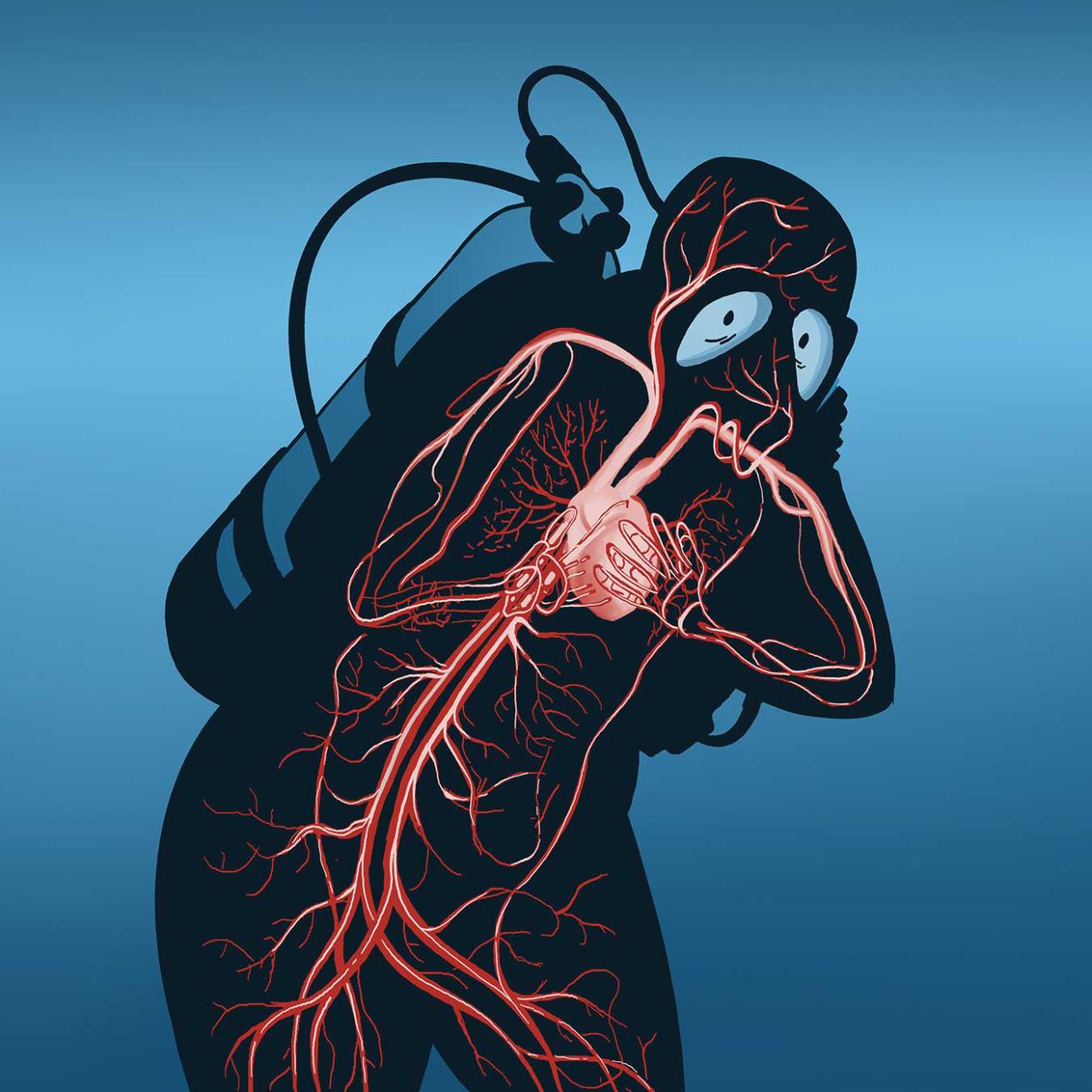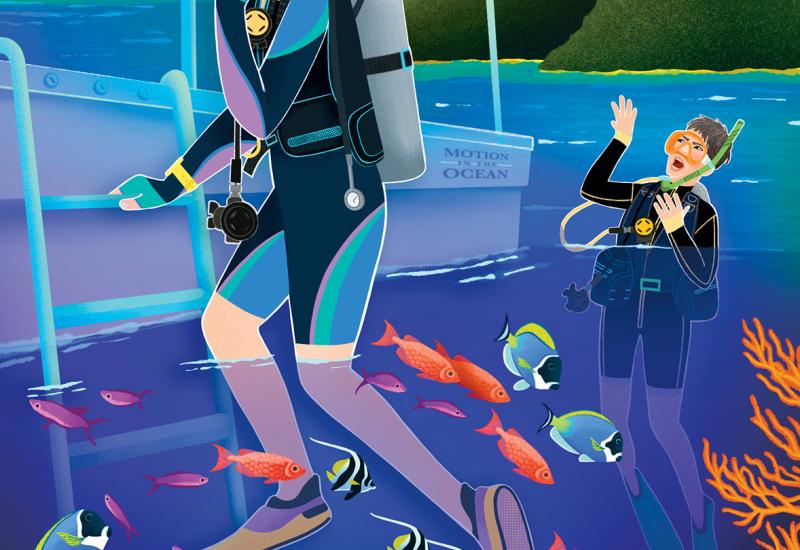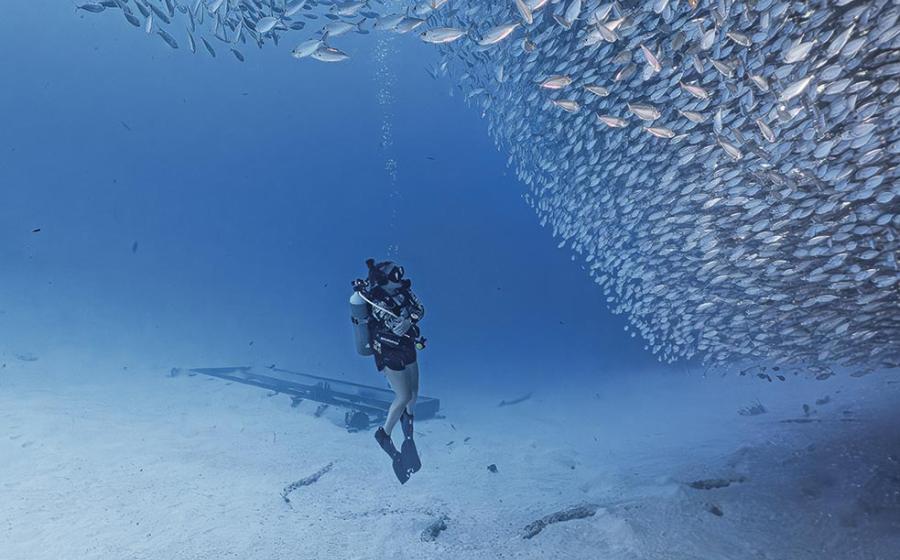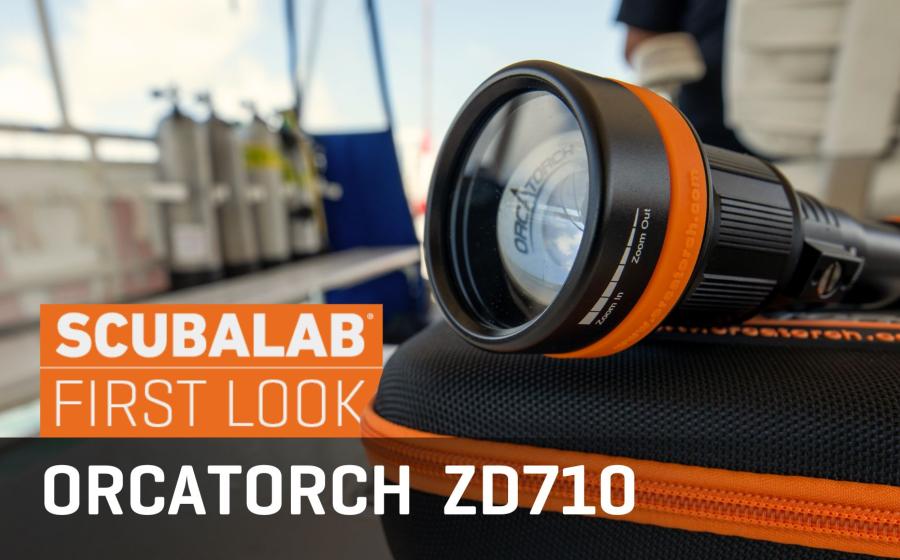How Important Is Your Dive Medical Questionnaire?

Steven P. HughesScuba diving should never be rushed, make sure you have the proper medical clearance before diving.
Determined to overcome her fear of the ocean, Jan enrolled in a PADI Open Water Diver course. After her first two certification dives in a local lake, Jan boarded a charter boat to fi nish her final two checkout dives with her instructor.
The Diver
Jan was a 41-year-old female. She was overweight and had high blood pressure. Her doctor had warned her in the past that her sedentary lifestyle and poor nutrition increased her risk of heart disease and diabetes, but she had yet to make lifestyle changes. Jan inaccurately answered “no” to all the medical questionnaire questions. She was busy and didn’t have time to see her doctor again before the course.
The Dive
Jan and her instructor headed 5 miles off-shore on the boat. Conditions were rough, with 4-foot seas at the dive site. Jan was apprehensive when she saw the chop, but she wanted to fi nish the course, and rather than share her fears with her instructor, she concealed her anxiety.
The Accident
Most of the other divers entered the water first. As soon as Jan completed her giant stride, the boat crew said she appeared distressed. She immediately returned to the boat but was unable to climb the ladder. Her instructor removed her dive gear and helped her up the ladder.
On the boat, Jan lost consciousness and stopped breathing. The crew began CPR while they recalled the other divers. As soon as everyone was back on board, the boat left for shore. The U.S. Coast Guard met them in transit and EMS took over at the dock. Jan was pronounced dead at the hospital.
Related Reading: What to Do If You Have a Rash After Scuba Diving
Analysis
We don’t have the autopsy on this case, but it is likely Jan had a cardiac emergency brought on by physical stress, panic and an underlying heart condition. Her dive equipment was inspected and found to be working normally.
Jan’s decision not to report her medical conditions was a bad idea. Experts in dive medicine and physiology created that form to make diving safer for everyone.
Jan’s panic would have dramatically elevated her heart rate. This, coupled with the effort to climb out of the water in rough seas, likely caused a heart attack.
Diving requires a basic level of fitness. You should always answer the medical questionnaire honestly and discuss your diving fitness with a doctor to assess your personal risk or tailor an exercise regimen to build strength and stamina.
In addition to fitness concerns, Jan’s fears likely led to her panic even before she hit the water. It is important for divers and dive leaders to recognize the early signs of panic and personal discomfort. Mitigating problems early can turn a potential disaster into a fixable problem. Had Jan not concealed her anxiety, the dive instructor probably would have told her to take the day off and planned to finish up her certification when conditions were better.
Related Reading: What Is Inner Ear Decompression Sickness?
Lessons For Life
Be fit to dive. It is important to be truthful on your medical release form and seek a doctor’s clearance if needed.
Mitigate panic. Any diver can call a dive for any reason. You should never feel pressure to make a dive. Wait to dive until you have better conditions or a better mindset.
As a pro, be aware. As a student, be honest. Consider if you are mentally and physically prepared to get in the water. Stress can lead to panic, causing bigger problems. As a pro, look for and address signs of stress in others.










